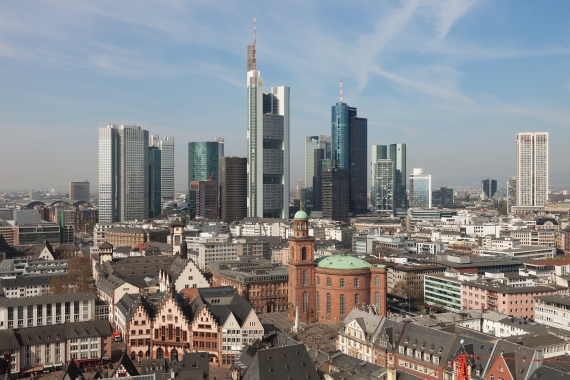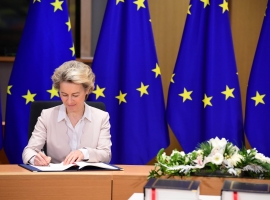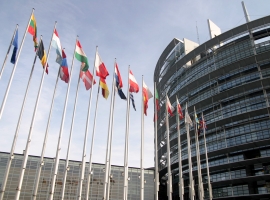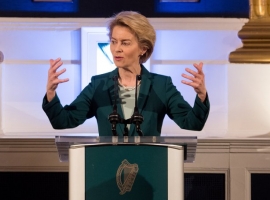
Euro zone economic growth slowed further in the second quarter, preliminary data showed, on what economists said were concerns over a possible trade war with the United States.
Separately, price growth accelerated due to higher energy prices, European Union statistics office Eurostat reported, although economists cautioned the uptick was unlikely to affect policy for now as energy effects are temporary.
Eurostat estimated that gross domestic product in the 19 countries sharing the euro expanded 0.3% quarter-on-quarter in the April-June period and was 2.1% higher against the same period of 2017.
Economists polled by Reuters had expected a 0.4 percent quarterly expansion and a 2.2% year-on-year rise.
"Trade uncertainty seems to have already had a significant effect on the Eurozone economy in Q2," Bert Colijn, a senior economist at ING bank said in a note to clients.
"While the impact on real export growth has likely been small over the second quarter, the confidence factor has been more important," he said.
"With lower confidence among businesses and consumers, concerns have likely translated into somewhat weaker domestic demand growth. In an economy in which capacity constraints abound and credit conditions remain favourable, confidence is the likely factor keeping investment down," he said.
The euro zone's second biggest economy France appeared to have been struggling with its own specific problems in the second quarter, as strikes and higher taxes hit consumer spending, but economists looked to the second half of the year for an upturn.
Eurostat estimated that headline consumer inflation accelerated to 2.1% year-on-year in July from 2.0% in June, mainly because of a spike in the cost of energy, which jumped to 9.4% year on year from 8.0.
Core inflation, which excludes energy costs as well as unprocessed food and which the European Central Bank looks at in policy decisions, also rose to 1.3% year-on-year from 1.2% in June, beating economists expectations.
An even narrower core inflation measure that economists pay attention to, which excludes also the costs of alcohol and tobacco, also rose to 1.1% from 0.9% in July -- again, above expectations. The ECB wants to keep headline inflation below, but close to, 2 percent over the medium term.
"This is still weak and very much in line with ECB expectations. As the energy effects are temporary, the high inflation rate should be taken with a grain of salt from a policy perspective at the moment, so will the ECB," Colijn said.
Economists said the higher inflation numbers would not trigger any policy tightening by the ECB yet.
"These numbers are unlikely to alter the view of the central bank," said Daniele Antonucci, economist at Morgan Stanley.
"It has made clear that it is taking its time before changing its rates and balance sheet guidance again. While Quantitative Easing should finish at year-end, we only see the first depo rate hike of 15 basis points to -0.25% in October 2019. Reinvestments should continue for a long time, probably way past our 2019 forecast horizon," he said.
Separately, Eurostat said unemployment in the euro zone was at 8.3% in June, unchanged from a downwardly revised 8.3% in May. The lowest unemployment rate in the euro zone was in Germany at 3.4% of the workforce, but it by less than expected in July, data showed, reflecting a cooling economy. (Reuters)
Source: www.businessworld.ie

















